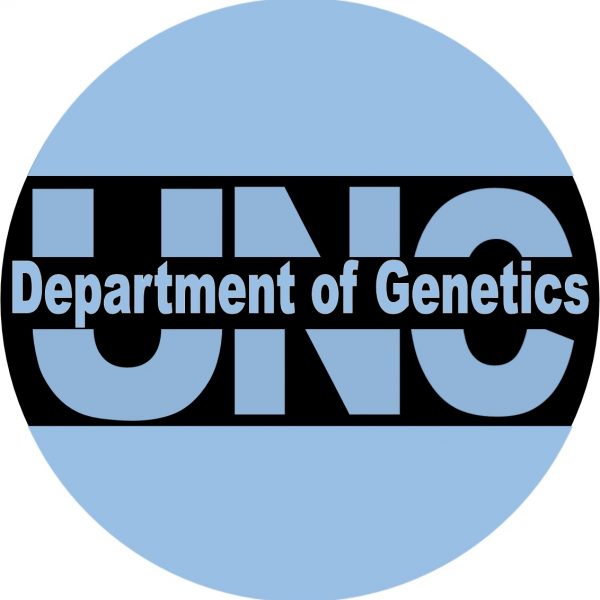Research Interests
Key words: gene-environment interactions, epigenetic reprogramming, epigenetic plasticity, developmental programming, DOHAD, genetic susceptibility
Dr. Ideraabdullah is an Associate Professor of Genetics in the School of Medicine and holds a joint appointment in the Department of Nutrition in the Gillings School of Global Public Health.
In addition to leading her research program, she serves as the Research Director for Healthy Development and Aging in the NIEHS-funded P-30 UNC Center for Environmental Health and Susceptibility [P30ES010126 (Troester)]. She also serves as Lead PI for the NHGRI-funded R25 training program, UNC EDGE Genomics (Educational Pathways to increase Diversity in Genomics) [R25HG012219-01 (Ideraabdullah, MPI)]. Learn more about UNC EDGE genomics here.
The Ideraabdullah lab studies the role of gene x environment interactions in modulating the epigenome and examines how these effects contribute to early origins of metabolic and reproductive diseases. A key focus is to develop more effective mouse models to help us understand the mechanisms driving interindividual responses to environment so we can better define the impacts of environmental exposures and associated disease risks across diverse human populations. Our ongoing research develops and characterizes mouse models of micronutrient insufficiencies (vitamin D) & environmental endocrine disruptors.
Current projects
Role of environment in programming the DNA methylation landscape during development. DNA methylation patterns in mammals undergo two required stages of reprogramming. In (i) germ cells and (ii) preimplantation embryos, genome-wide methylation is erased and reset as development progresses. We have shown that vitamin D depletion during development has persistent effects on adiposity and DNA methylation landscapes into adulthood. Mouse somatic and germ cell lineages exhibited primarily loss of DNA methylation and the extent of methylation change was dependent on genomic/epigenomic context. Our ongoing studies combine findings from diet, toxicant, and metabolic models to elucidate mechanisms by which developmental environment perturbs the progeny epigenome and impacts long-term metabolic health.
Role of parental genome in developmental programming. Genetic screening for susceptibility to disease typically focuses on the genotype and disease outcome within an individual. We have used a combination of environmental exposure models and induced/targeted mutant mouse lines and naturally occurring (Collaborative Cross) genetic mouse models to demonstrate that maternal genotype plays a key role in developmental programming of progeny DNA methylomes and phenotypes across multiple generations. Our ongoing studies are aimed at identifying the causal regulatory genetic sequences and using these to screen for susceptible populations.
Please feel free to contact me by email or phone to discuss potential areas of my research where you would like to be involved or learn more.
Mentor Training:
- Faculty Mentoring Workshop for Biomedical Researchers
Training Program Affiliations:
- Genetics and Molecular Biology
- Nutrition
- Toxicology
Publications
Folami Ideraabdullah in UNC Genetics News

October 13, 2025
Department of Genetics Publications for September 2025
Department of Genetics faculty, postdocs, students and collaborators published 33 papers in September 2025.

July 1, 2025
Department of Genetics Publications for June 1st – 28th, 2025
Department of Genetics faculty, postdocs, students and collaborators published 25 papers during June 1st - 28th 2025.

March 3, 2025
Department of Genetics Publications for February 2nd – March 1st, 2025
Department of Genetics faculty, postdocs, students and collaborators published 18 papers during February 2nd - March 1st 2025.

December 16, 2024
Department of Genetics Publications for November 24th – December 7th, 2024
Department of Genetics faculty, postdocs, students and collaborators published 17 papers during November 24th - December 7th, 2024.

June 10, 2024
Department of Genetics Publications for May 12th – June 8th, 2024
Department of Genetics faculty, postdocs, students and collaborators published 23 papers during May 12th - June 8th 2024.

August 28, 2023
Department of Genetics Publications for August 13th – 26th, 2023
Department of Genetics faculty, postdocs, students and collaborators published 11 papers during August 13th - 26th 2023.

October 24, 2022
Department of Genetics Publications for October 9th – 22nd, 2022
Department of Genetics faculty, postdocs, students and collaborators published 10 papers during October 9th – 22nd, 2022.

August 29, 2022
Department of Genetics Publications for August 14th – 27th, 2022
Department of Genetics faculty, postdocs, students and collaborators published 14 papers during August 14th – 27th, 2022.

January 11, 2021
Dr. Folami Ideraabdullah Elected as a Director for Genetic Society of America
Dr. Folami Ideraabdullah (Associate Professor, Genetics and Nutrition) has been elected to a three-year term as a director of the Genetic Society of America.

January 4, 2021
Folami Ideraabdullah, PhD Appointed Associate Professor with Tenure
Dr. Folami Ideraabdullah has been appointed Associate Professor with tenure in the Department of Genetics with a joint appointment in the Department of Nutrition, effective Jan. 1, 2021.
